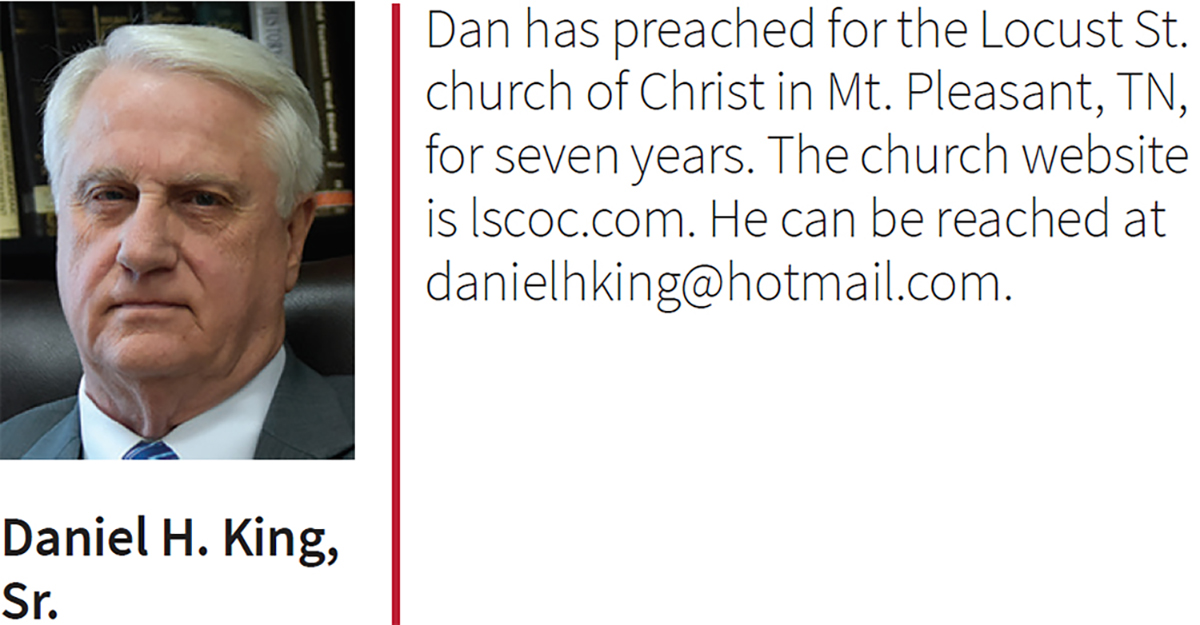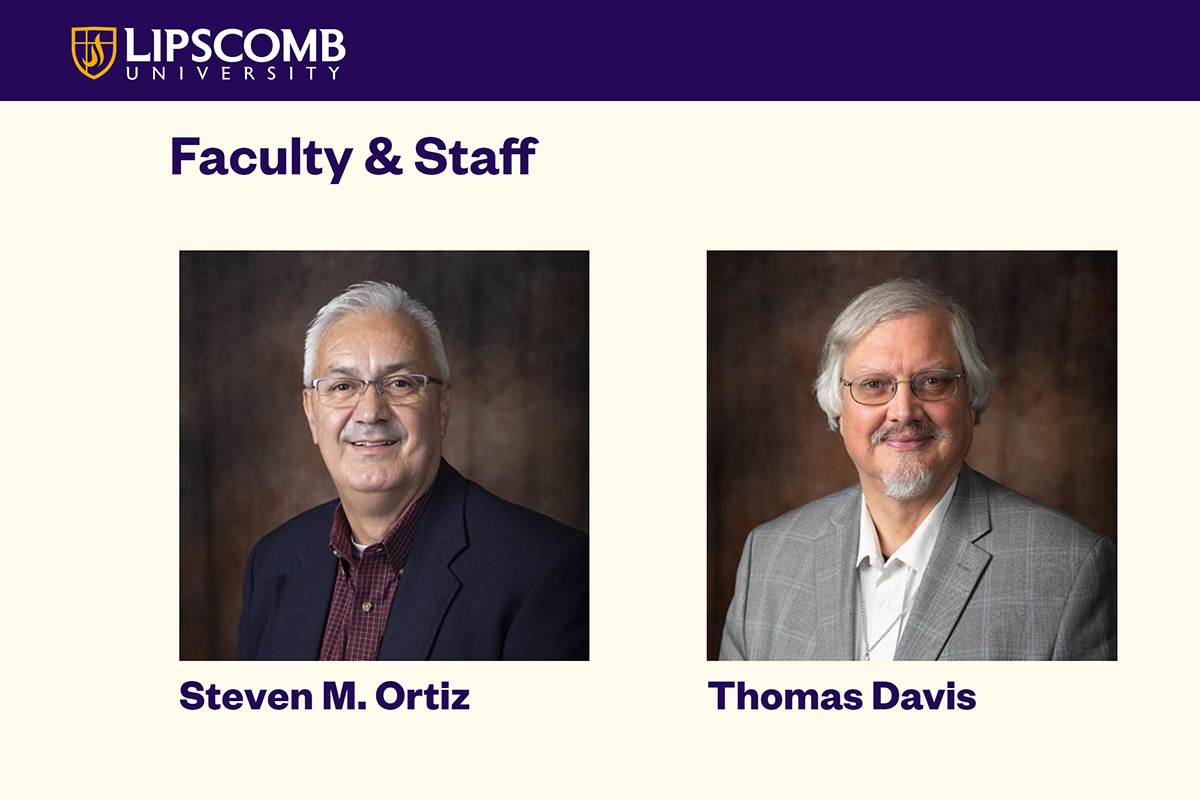by Daniel H. King, Sr.
Synopsis: While these changes at Lipscomb University are interesting from an academic standpoint, from a spiritual perspective, they reflect a continued denominational drift among brethren.
Students of Biblical Archaeology (BA) were dismayed to hear of the closing of the Southwestern program in Biblical Archaeology along with the Tandy Institute of Archaeology and Museum in Fort Worth, Texas, amid the COVID-19 viral pandemic. It happened on account of financial considerations associated with the pandemic in April 2020. The Institute was housed at the Southwest Baptist Theological Seminary since 1983 and was one of the leading training centers for BA students in the United States before this announcement. The school was associated with the Southern Baptists and so was deemed religiously conservative by comparison with many other such schools. Its closing encompassed the firing of the entire faculty and staff. Adam W. Greenway, the new president of the institution, had decided to concentrate the energies of the Baptist seminary on the “training of pastors and other ministers of the gospel for the churches of the Southern Baptist Convention.” Greenway considered the training of archaeologists to be a less critical career path for students, and so terminated the program.
William Mark Lanier, founder of the Lanier Law Firm (founded in 1990, with offices in Oklahoma City, Los Angeles, Houston, and New York), a well-known trial lawyer and benefactor of causes related to the discipline of BA, especially concerning the American Schools of Oriental Research (ASOR), heard of the firings. Lanier was a graduate of Lipscomb himself (B.A., 1981), and contacted the University with the suggestion that they attempt to hire Professors Thomas Davis and Steven Ortiz to teach at the school. Lanier serves on the Board of the ASOR, the Albright Institute, and Lipscomb University. He teaches a weekly Bible Class at the Champion Forest Baptist Church in Houston.
Due to his generous donations to this end, the Lanier Center for Archaeology plans to offer a Doctor of Philosophy in Archaeology of the Ancient Near East and a Master of Arts in Archaeology and Biblical Studies in January of 2021, pending accreditation approval. Lipscomb not only hired Davis and Ortiz but acquired their research, their 25 students, some of the museum’s archives and study collections, along with a ceramic restoration lab. “Field research projects include Tel Gezer excavation and publication project in Israel, Kourion Urban Space project in Cyprus, Karnak epigraphic survey in Egypt and the Tel Burna excavation project in Israel, as well as projects in Jordan, Kazakhstan and Sudan” (Bible History Extra, August 12, 2020). The Bible History Daily described this as “the summer Lipscomb University saved Biblical Archaeology” and called it a “coup” for “the Church of Christ affiliated liberal arts university in Nashville” (July 15, 2020).
From the perspective of academics, there is little doubt that this is true. Lipscomb University has increased its academic standing considerably by this fortuitous acquisition. Davis and Ortiz are extremely capable archaeologists with excellent credentials and considerable standing in their chosen discipline. Going forward, the Lanier Center will be a nucleus for archaeological research in the area of biblical study for the Mid-south. Academically speaking, it truly is a coup for Lipscomb.
Yet, other factors should also be considered as well, and those factors have nothing at all to do with archaeology. What goes unmentioned in the media’s congratulation of Lipscomb for its decision are two things. First, there is the fact that the school already had a sitting board member who was associated with a Baptist church.
Historically, schools run by brethren have always had only faithful members of the churches of Christ as board members. That has been the case for obvious reasons. Apparently, that has changed at Lipscomb. Second, Lipscomb’s Baptist board member provided enough money to the institution to enable them to hire two Baptist teachers from a Baptist seminary and inculcate a twenty-five member Baptist student body into its “Church of Christ affiliated” student body. Once again, it has been the practice of schools affiliated with churches of Christ to hire only members of the church of Christ to teach, especially in Bible-related areas of competence. Clearly, that practice has also been shelved at Lipscomb, just as it was already at Pepperdine.
From a historical perspective, this is another in a long series of sad but interesting developments that have taken place at Lipscomb as it has become progressively more liberal in its approach to “Christian education.” This writer has followed them closely because Lipscomb is my alma mater (class of 1970). It will be recalled that brother Batsell Barrett Baxter (a Lipscomb professor) argued in his 1963 sermon series at the Hillsboro church of Christ in Nashville, which was later turned into a tract, “It is my conviction that the schools need to be dependent upon the churches for the financial life blood in order for the schools to remain permanently loyal to the goals and principles which the Bible teaches” (Questions and Issues of the Day, 29-30).
Of course, a significant number of churches and individuals like myself have consistently opposed the practice of churches contributing to the college for scriptural reasons. Nevertheless, throughout the years, many churches have followed Baxter’s advice on this matter and sent contributions to Lipscomb, along with other schools run by brethren. What have they gotten for their investment? The answer: Baptists on the Board of Directors and now also on the faculty of the school.


